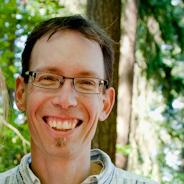 A new dawn is breaking on how we teach science. Physics and astronomy education research demonstrates again and again that traditional students-as-empty-vessels lectures do not promote learning. Instead, instructors need to facilitate learner-centered instruction where students generate their own knowledge.
A new dawn is breaking on how we teach science. Physics and astronomy education research demonstrates again and again that traditional students-as-empty-vessels lectures do not promote learning. Instead, instructors need to facilitate learner-centered instruction where students generate their own knowledge.
While I was at grad school, I had the opportunity to teach. Not just mark papers or run tutorials, but actually teach first year calculus. And I loved it. So much that when I finished my Ph.D., I chose to teach rather than pursue an academic research career.
I taught math for a few years before finding my true passion: teaching people about astronomy. I taught introductory astronomy to non-Science undergrads, the ones who need a science credit to graduate. This course, typically referred to as “astro 101”, is important because
- it’s estimated that up to 40% of the students are pre-service teachers (though some don’t know it yet)
- it’s likely the only science course they will ever take
In other words, astro 101 is likely the only science course our kids’ elementary school teachers will ever take. If want our kids to scientifically literate, we’d better do a good job teaching their teachers. And the students who don’t become teachers are the next generation of lawyers, politicians and CEOs, just the sorts of people we hope are fluent enough in science that they can make informed decisions.
I’m not teaching those astro 101 students, though. Through the Carl Wieman Science Education Initiative, I work with instructors in the Department of Physics and Astronomy to implement better ways to teach. I get to train the trainers, teach the teachers, instruct the instructors. Not about content but about teaching. Cool.
Here’s a few ways to contact me:
- email: newbury at phas.ubc.ca
- twitter: @polarisdotca
- work phone: 604-822-5527
